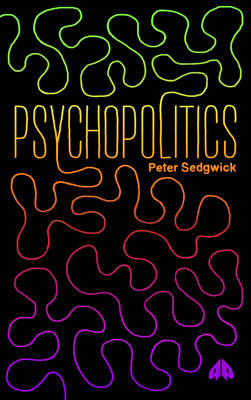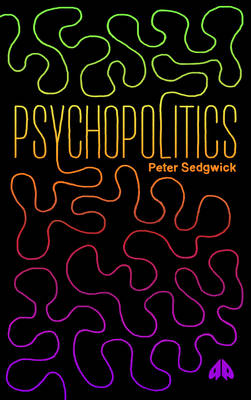
- Afhalen na 1 uur in een winkel met voorraad
- Gratis thuislevering in België vanaf € 30
- Ruim aanbod met 7 miljoen producten
- Afhalen na 1 uur in een winkel met voorraad
- Gratis thuislevering in België vanaf € 30
- Ruim aanbod met 7 miljoen producten
Zoeken
Omschrijving
A new edition of one of the most significant and credible critiques of the anti-psychiatry movement. As relevant today as it was when first published in 1982, the book changed the conversation on mental health and illness, demanding that we assess its relationship to the wider decay of social institutions. Dissecting the work of popular anti-psychiatric thinkers, Erving Goffman, R.D. Laing, Michel Foucault, and Thomas Szasz, Sedgwick exposed the conservative undercurrents and false hopes represented by the alternative psychiatry of the sixties and seventies, challenging the very real impact it had on our collective responsibility to look after the mentally ill. With a new introduction that highlights the relevance of Sedgwick's demands for modern mental health movements, the practice of psychiatry and for left-wing activists, this new edition further cements PsychoPolitics' cult classic status.'A powerful and impassioned defence of psychiatry, urging the Left to confront the harsh realities of mental illness' - William Davis, author of The Happiness Industry A new edition of one of the most significant and credible critiques of the anti-psychiatry movement. As relevant today as it was when first published in 1982, the book changed the conversation on mental health and illness, demanding that we assess its relationship to the wider decay of social institutions. Dissecting the work of popular anti-psychiatric thinkers, Erving Goffman, R.D. Laing, Michel Foucault and Thomas Szasz, Sedgwick exposed the conservative undercurrents and false hopes represented by the alternative psychiatry of the sixties and seventies, challenging the very real impact it had on our collective responsibility to look after the mentally ill. With a new introduction that highlights the relevance of Sedgwick's demands for modern mental health movements, the practice of psychiatry and for left-wing activists, this new edition further cements PsychoPolitics' cult classic status.
Specificaties
Betrokkenen
- Auteur(s):
- Uitgeverij:
Inhoud
- Aantal bladzijden:
- 304
- Taal:
- Engels
Eigenschappen
- Productcode (EAN):
- 9780745347257
- Verschijningsdatum:
- 20/08/2022
- Uitvoering:
- Hardcover
- Formaat:
- Genaaid
- Afmetingen:
- 140 mm x 216 mm
- Gewicht:
- 535 g

Alleen bij Standaard Boekhandel
+ 312 punten op je klantenkaart van Standaard Boekhandel
Beoordelingen
We publiceren alleen reviews die voldoen aan de voorwaarden voor reviews. Bekijk onze voorwaarden voor reviews.











